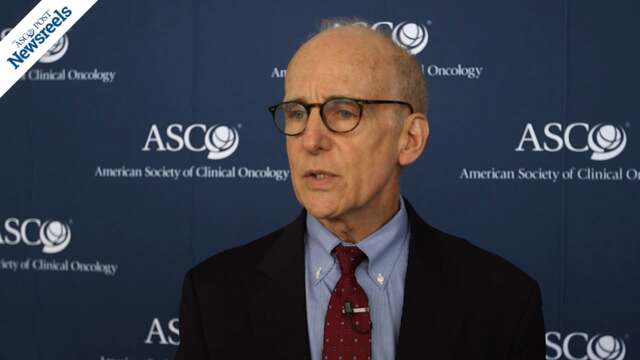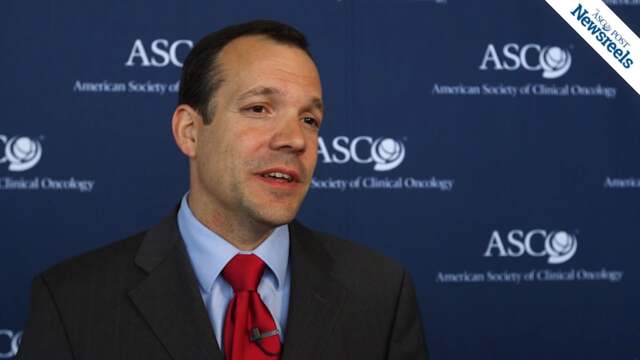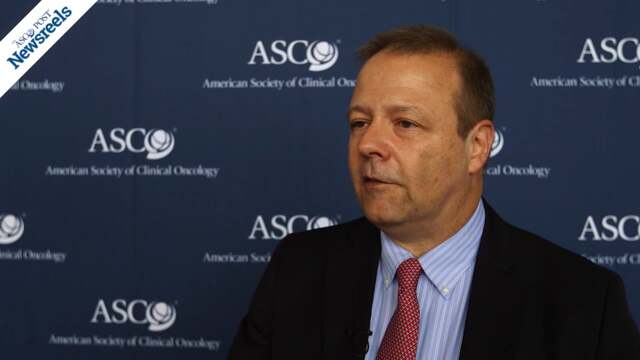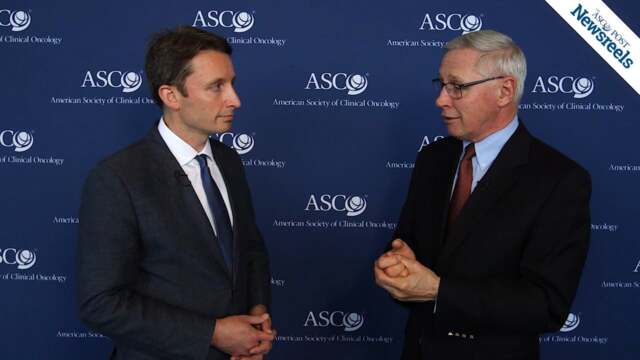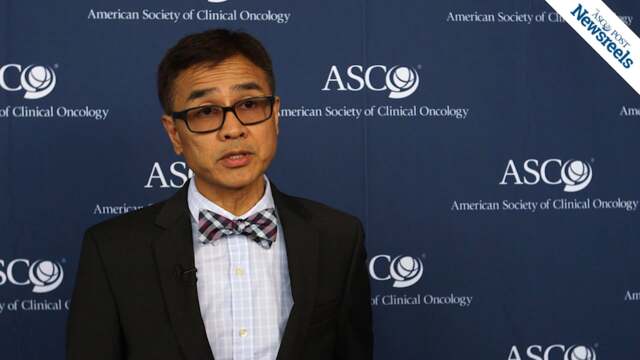Gerhardt Attard, MD, PhD, on Prostate Cancer: Results From an After-Market Study on Enzalutamide
2017 ASCO Annual Meeting
Gerhardt Attard, MD, PhD, of The Royal Marsden Hospital and The Institute of Cancer Research, discusses trial results on continued enzalutamide post prostate-specific antigen progression in men with chemotherapy-naive metastatic castration-resistant prostate cancer. (Abstract 5004)
David H. Henry, MD, of Pennsylvania Oncology Hematology Associates, outlines abstracts focusing on chemotherapy in locally advanced rectal cancer and immune-related toxicity, response to anti–PD-L1 blockade, and epacadostat plus pembrolizumab in lung cancer.
Olivier Tredan, MD, PhD, of the Centre Léon Bérard, discusses results from ProfilER, a study that explored the use of cancer cell genomic alterations to guide treatment in patients with advanced refractory cancer. (Abstract LBA100)
Axel Grothey, MD, of the Mayo Clinic Rochester, discusses study findings on shortening the duration of adjuvant oxaliplatin-based therapy, linked to neurotoxicity, for patients with stage III colon cancer. (Abstract LBA1)
Dean F. Bajorin, MD, of Memorial Sloan Kettering Cancer Center, and Peter H. O’Donnell, MD, of The University of Chicago Medical Center, discuss their study findings on treating advanced urothelial cancer with pembrolizumab, paclitaxel, docetaxel, or vinflunine. (Abstracts 4501 and 4502)
Primo Lara, MD, of the University of California, Davis Comprehensive Cancer Center, discusses three top abstracts on treating advanced renal cell carcinoma with epacadostat, pembrolizumab, atezolizumab, bevacizumab, sunitinib, or pazopanib. (Abstracts 4505, 4507, 4515)
